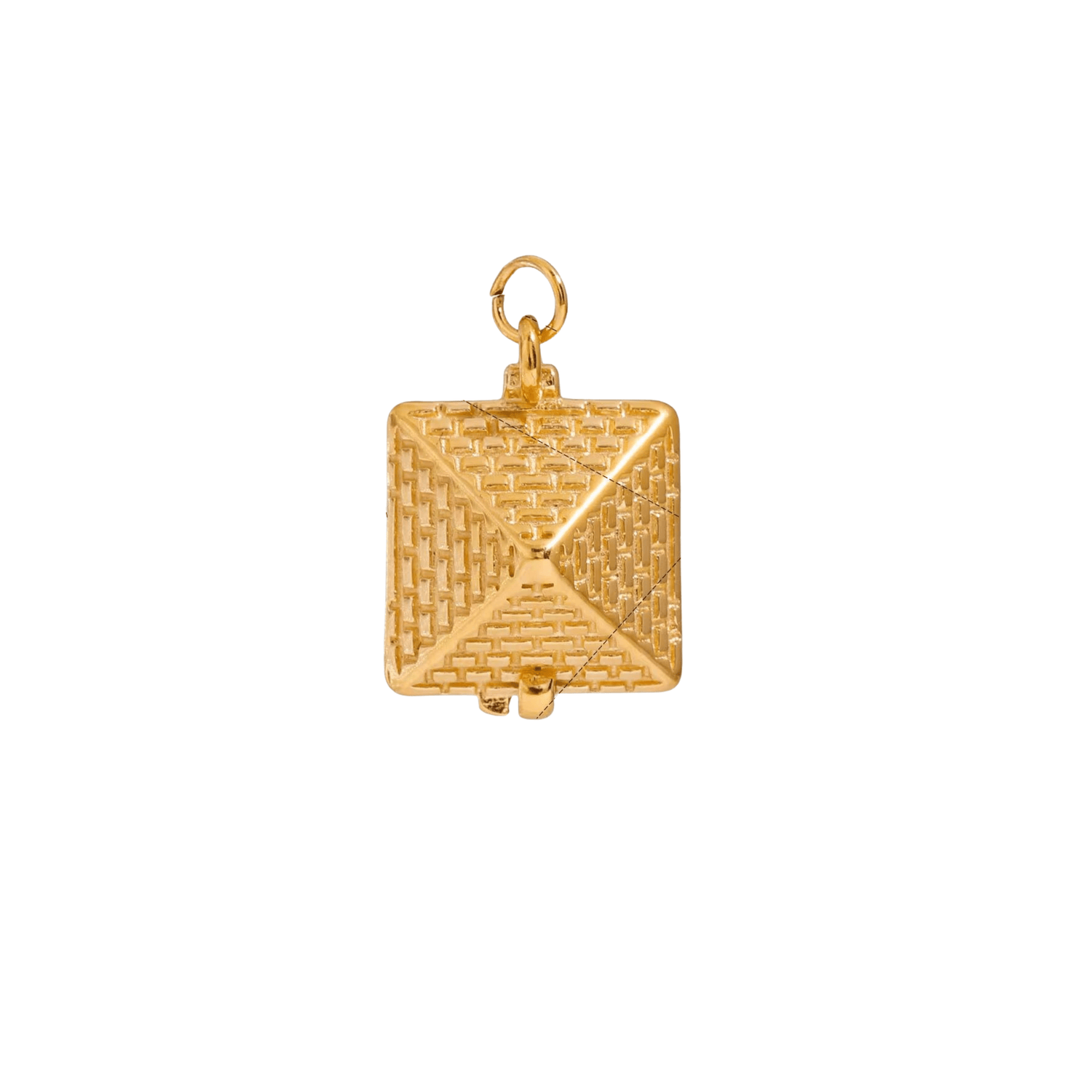
Chain Necklaces Bridge Casual and Formal Contexts
Share
Quick Listen:
In the bustling markets of Mumbai and the sleek boutiques of Delhi, a subtle shift is reshaping how India accessorizes. Chain necklaces, once relegated to special occasions or traditional ensembles, are now a staple for urban professionals and style-conscious youth alike. From boardrooms to weekend brunches, these versatile pieces are rewriting the rules of jewelry in India, blending affordability with elegance. For brands like Foramour, this trend is more than a fashion statement it's a cultural pivot toward practicality and personal expression.
Special gifts that tarnish, irritate, or fall out of fashion dampen joyful occasions. That disappointment clouds memories meant to endure. Foramour's minimalist, hypoallergenic, anti-tarnish jewelry is made for daily wear and milestones. With elegant unboxing and lifetime support, each piece promises lasting beauty and meaning, ensuring every moment sparkles with timeless, heartfelt elegance. Shop Now!
Chain Necklaces Gain Ground in India: The Versatile Accessory for Everyday and Formal Wear
Rising demand for chain necklaces reflects a broader evolution in India's jewelry market, where consumers are prioritizing pieces that transition seamlessly between contexts. According to a report from Fortune Business Insights, the global necklace market, valued at USD 50.03 billion in 2024, is projected to grow to USD 75.85 billion by 2032, with a compound annual growth rate (CAGR) of 5.45%. Asia Pacific, led by India, accounted for a commanding 40.9% market share in 2024, driven by rising disposable incomes and a appetite for personalized, handmade jewelry. In India, chain necklaces whether crafted from gold, platinum, or sustainable alloys are at the forefront of this surge, offering a balance of minimalism and sophistication that resonates with urban millennials and Gen Z.
The appeal lies in their adaptability. A lightweight gold-plated chain can elevate a crisp kurta for a festive gathering or pair effortlessly with a blazer for a corporate meeting. Retailers in metro cities like Bengaluru and Hyderabad report a spike in demand for these “transitional” pieces, which cater to the hybrid lifestyles of India's workforce. The Gem & Jewellery Export Promotion Council (GJEPC) notes that jewelry consumption is growing not just in metros but also in Tier-2 cities like Jaipur and Surat, where consumers are drawn to affordable yet stylish options. Chain necklaces, with their sleek designs and customizable features, fit the bill perfectly.
From Tradition to Trend: The Rise of Transitional Jewelry
India's jewelry market has long been synonymous with ornate, occasion-specific pieces heavy gold sets for weddings or gem-encrusted bangles for festivals. But urban India is rewriting this narrative. A study by the National Institute of Fashion Technology (NIFT) highlights the rise of “transitional jewelry,” pieces that bridge the gap between daily wear and special occasions. Chain necklaces, with their clean lines and modular designs, are leading this charge. Unlike their bulkier counterparts, these necklaces are lightweight, often adjustable, and available in materials ranging from sustainable alloys to lab-grown diamonds, aligning with the eco-conscious preferences shaping consumer behavior.
Social media platforms like Instagram and Moj, India's short-video app, amplify this trend. Lifestyle influencers showcase chain necklaces layered with ethnic wear or styled solo with western outfits, inspiring followers to experiment. During the 2024 festive season, brands rolled out collections of gold-plated and artificial chains marketed as “all-occasion wear,” a strategy that resonated with younger buyers. For instance, a Delhi-based retailer reported a 30% increase in sales of minimalist chains, citing their versatility as a key driver. This shift isn't just aesthetic it's practical. As hybrid work models persist, Indian professionals seek accessories that complement both Zoom calls and evening outings without breaking the bank.
Challenges in a Price-Sensitive Market
Despite their popularity, chain necklaces face hurdles in India's diverse market. Price sensitivity remains a significant barrier, particularly in Tier-2 and Tier-3 cities, where consumers weigh cost against durability. Traditional jewelers, offering low-margin, mass-produced chains, pose stiff competition to premium brands like Foramour, which emphasize quality and sustainability. Fluctuating gold prices, tracked by the Reserve Bank of India, further complicate purchasing decisions, pushing some buyers toward affordable alternatives like costume jewelry. A report from Allied Market Research notes that the global costume jewelry market, valued at $45.2 billion in 2023, is expected to reach $86.8 billion by 2033, with a CAGR of 6.8%. In India, these pieces made from base metals, glass, or synthetic stones are gaining traction for their affordability and trend-driven designs.
Consumer concerns about authenticity and eco-friendliness also loom large. With sustainability becoming a priority, buyers are scrutinizing the sourcing of metals and gems. Reports from the Federation of Indian Chambers of Commerce & Industry (FICCI) and the Confederation of Indian Industry (CII) highlight a growing preference for eco-conscious brands, yet skepticism about greenwashing persists. For premium players like Foramour, addressing these concerns through transparent sourcing and certifications is critical to maintaining trust.
Opportunities for Growth and Innovation
The chain necklace boom presents significant opportunities for brands willing to innovate. Metro regions like Delhi-NCR, Mumbai, and Bengaluru are fertile ground for expansion, with consumers increasingly viewing chains as “smart wardrobe investments.” E-commerce platforms like Myntra and Tata CLiQ Luxury have leaned into this trend, marketing chains with adjustable lengths, engravings, or mixed-metal designs. Customization is a key draw buyers want pieces that reflect their personality, whether through a monogrammed pendant or a chain that pairs with both saris and suits.
Sustainability is another growth driver. Lab-grown diamonds and recycled metals are gaining traction, particularly among younger buyers who prioritize ethical consumption. Foramour, for instance, has positioned itself as a leader in this space, offering modular chains that can be reconfigured for different looks, reducing the need for multiple purchases. This approach aligns with the broader shift toward conscious consumerism, as outlined in FICCI's reports on evolving Indian buyer behavior. Digital-first strategies are also key, with brands leveraging social media and e-commerce to reach tech-savvy shoppers in smaller cities.
A Memorable The Future of Chain Necklaces in India
As India's jewelry landscape evolves, chain necklaces are emerging as more than a fleeting trend they're a symbol of a new ethos. By 2030, industry experts from the GJEPC predict that these pieces will become a “default accessory” in urban wardrobes, much like watches or earrings. Their appeal lies in their ability to transcend boundaries cultural, professional, and aesthetic. For brands like Foramour, the path forward is clear: lean into sustainability, embrace customization, and tell stories that resonate with India's diverse consumers. Whether it's a gold chain glinting under office lights or a minimalist alloy piece at a Diwali celebration, these necklaces are weaving themselves into the fabric of modern India, one link at a time.
Frequently Asked Questions
Why are chain necklaces becoming so popular in India's jewelry market?
Chain necklaces are gaining popularity in India because they offer versatility that matches modern hybrid lifestyles. Unlike traditional ornate jewelry designed for specific occasions, these pieces transition seamlessly from boardroom meetings to weekend brunches. The global necklace market is projected to grow from USD 50.03 billion in 2024 to USD 75.85 billion by 2032, with Asia Pacific leading at 40.9% market share, driven by India's rising disposable incomes and demand for personalized, adaptable jewelry.
What makes chain necklaces suitable for both casual and formal wear?
Chain necklaces excel as transitional jewelry due to their clean lines, lightweight design, and modular nature. A single gold-plated chain can elevate a traditional kurta for festive gatherings or complement a blazer for corporate settings. Their minimalist aesthetic and customizable features such as adjustable lengths and mixed-metal designs allow them to bridge the gap between daily wear and special occasions, making them ideal "smart wardrobe investments" for urban professionals.
Are chain necklaces affordable compared to traditional Indian jewelry?
Chain necklaces offer a more accessible entry point into quality jewelry compared to heavy traditional sets. While price sensitivity remains a concern in Tier-2 and Tier-3 cities, these pieces provide excellent value by serving multiple styling purposes. Available in various materials from sustainable alloys to lab-grown diamonds, chain necklaces cater to different budgets while offering the versatility that reduces the need for multiple jewelry purchases, making them cost-effective for modern consumers.
Disclaimer: The above helpful resources content contains personal opinions and experiences. The information provided is for general knowledge and does not constitute professional advice.
You may also be interested in: Hypoallergenic Gold Products Bridge Medical and Fashion Worlds
Special gifts that tarnish, irritate, or fall out of fashion dampen joyful occasions. That disappointment clouds memories meant to endure. Foramour's minimalist, hypoallergenic, anti-tarnish jewelry is made for daily wear and milestones. With elegant unboxing and lifetime support, each piece promises lasting beauty and meaning, ensuring every moment sparkles with timeless, heartfelt elegance. Shop Now!
Powered by flareAI.co

